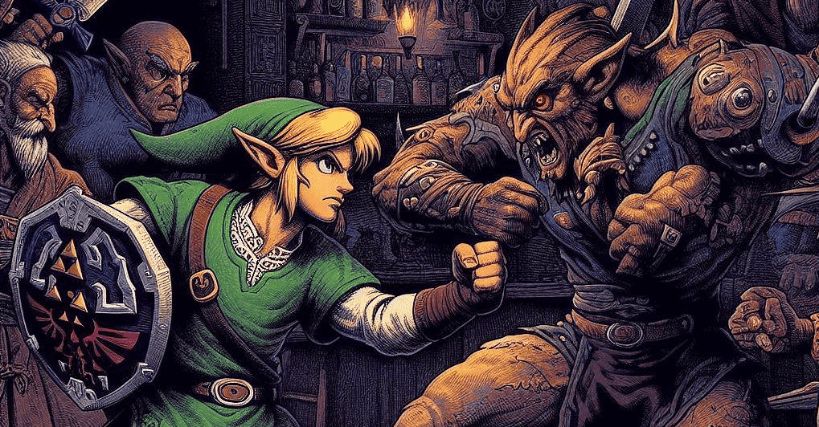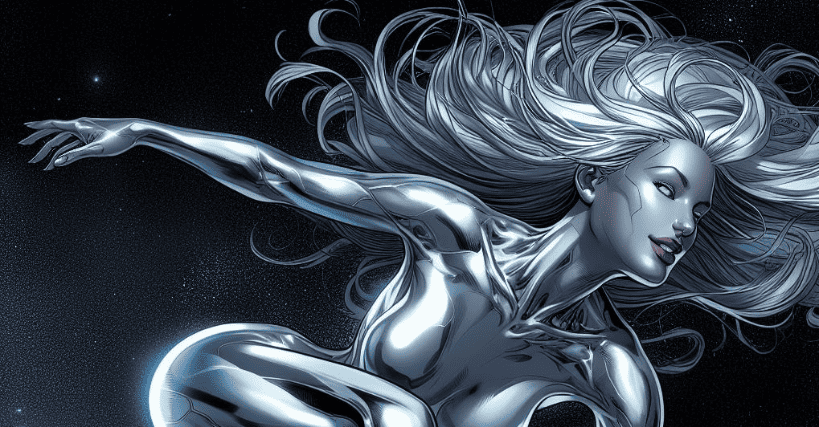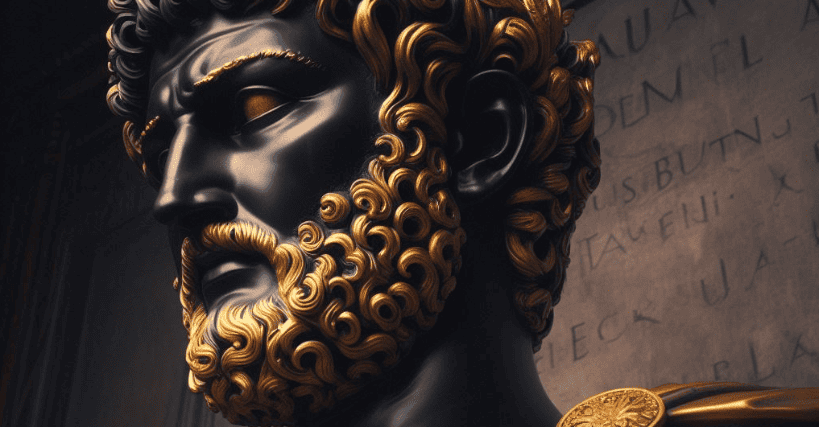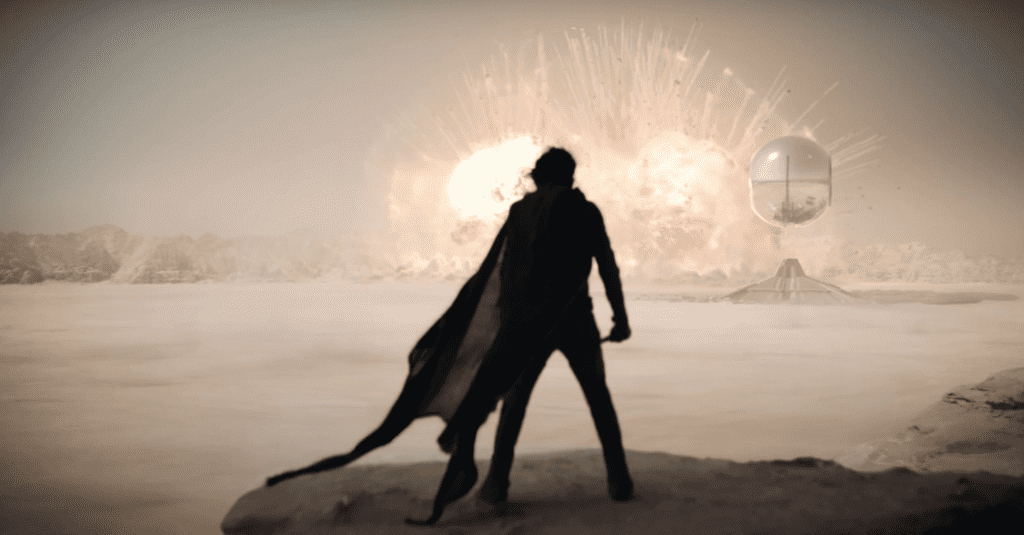
Unearthing the Philosophical Treasures of Dune: Why Young Men Should Read Herbert’s Epic
In the vast desert of science fiction literature, Frank Herbert’s “Dune” stands as an oasis of profound philosophy and timeless wisdom. This seminal work, first published in 1965, has captivated readers for generations with its intricate blend of political intrigue, environmental consciousness, and profound insights into the human condition. In this article, we’ll delve into the philosophical depths of “Dune,” using examples and excerpts from the book to illustrate why young men, in particular, should explore this monumental series.
The Power of Choice
In “Dune,” the concept of personal choice and its consequences takes center stage. The protagonist, Paul Atreides, is faced with a future laden with power, responsibility, and sacrifice. He grapples with the concept of the “Golden Path,” a path to guide humanity’s future, and the burdens of leadership. His journey highlights the importance of personal agency and how the choices we make shape not only our destinies but also those of the people we lead.
In the words of Paul Atreides: “I must not fear. Fear is the mind-killer. Fear is the little-death that brings total obliteration. I will face my fear. I will permit it to pass over me and through me. And when it has gone past, I will turn the inner eye to see its path. Where the fear has gone, there will be nothing. Only I will remain.”
Young men can find inspiration in Paul’s resilience and his unwavering commitment to his choices, even in the face of daunting challenges.
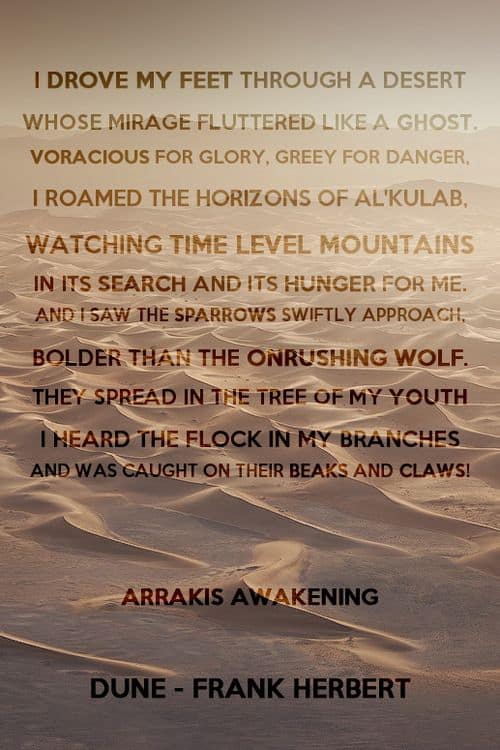
Environmental Awareness
“Dune” is not merely a space opera; it is an ecological parable. Herbert’s vivid depiction of the desert planet Arrakis, with its sandworms and precious spice melange, underscores the importance of environmental stewardship. The exploitation of natural resources and the ecological consequences serve as a cautionary tale. The book challenges us to consider the consequences of our actions on the environment.
In the words of Liet-Kynes, the planetologist: “Arrakis, Dune, desert planet. A world of dry sand dunes where they mined the spice melange. What has always drawn men here? The spice, the spice. A sandworm converts sand, rock, and dust into spice… We are a desert power, without a thing to spare.”
Young men can learn valuable lessons about the delicate balance between human ambition and the environment from Herbert’s vision of Arrakis.
The Perils of Fanaticism
“Dune” explores the dangers of religious and ideological fanaticism. The Fremen, native to Arrakis, become fervent followers of Paul Atreides, viewing him as their prophesied messiah. This intense devotion leads to conflict, manipulation, and a loss of individuality. Herbert’s depiction of this blind allegiance serves as a cautionary tale about the perils of unbridled fanaticism.
In the words of the Princess Irulan: “When religion and politics travel in the same cart, the riders believe nothing can stand in their way. Their movement becomes headlong – faster and faster and faster. They put aside all thought of obstacles and forget that a precipice does not show itself to the man in a blind rush until it’s too late.”
Young men can find valuable insights into the consequences of blind devotion and the importance of critical thinking and individuality.
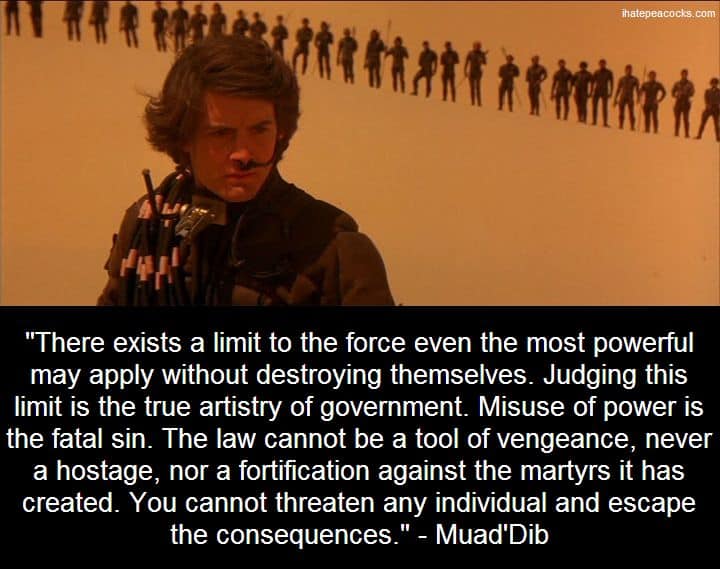
“Dune” is a literary masterpiece that offers a wealth of philosophical insights and lessons. Frank Herbert’s epic saga explores themes of personal agency, environmental responsibility, and the perils of fanaticism. For young men embarking on their journey through life, “Dune” serves as a source of inspiration and contemplation. Its lessons about the power of choice, environmental stewardship, and the dangers of blind allegiance are timeless and resonate with readers of all ages. Reading “Dune” is not just an exploration of an extraordinary science fiction universe; it’s a voyage into the complexities of the human soul and society, making it a must-read for young men seeking wisdom and guidance on their own path.

